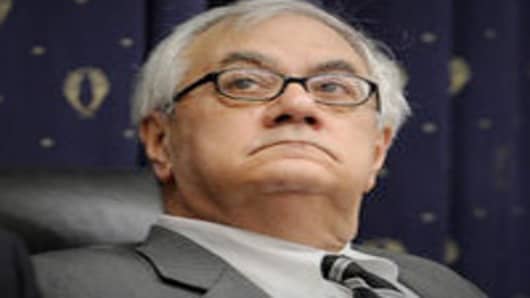Republicans are eyeing the powerful chairmanship of the House financial services committee held by Barney Frank, the Massachusetts Democrat, as one of the biggest spoils of victory in November’s midterm congressional elections.
Mr Frank, whose sharp tongue makes him one of the Democrats’ most formidable congressmen, pushed through Wall Street reform against Republican opposition and will have a key role in determining US housing policy should his party retain its majority in the House. Polls show control of the House of Representatives is too close to call while the Democrats are expected to retain control of the Senate, albeit with a reduced majority.
“You are speaking to the son of a chicken farmer,” said Jeb Hensarling, a Republican member of the financial services committee, explaining why he is not prematurely counting his chickens. Still, he and other Republicans are thinking about how they would tackle financial issues if they win control.
The most crucial issue is likely to be the future shape of the housing market, with the Obama administration planning to reform Fannie Mae and Freddie Mac, the government-controlled enterprises (GSEs) which fund almost the entire mortgage market.
However, although Republicans complain about the Democrats’ approach there is common ground. Similarly, although John Boehner, the Republican leader in the House, has vowed to repeal the sweeping financial reform legislation that passed last month, his colleagues have more modest goals. “We will attempt to repeal particular parts of the bill that get the government more into the guarantee business or the bail-out business,” said Spencer Bachus, the senior Republican on the House financial services committee.
Mr Hensarling said it was too soon to assess “the art of the do-able” in amending the financial reform law but he would try to bring “rationality” to the powerful new Consumer Financial Protection Bureau and imagined that the Volcker Rule that limits banks ability to trade for themselves “would need some work."
One problem for Republicans is dissent within their own ranks as to who should lead the committee. Mr Bachus is first in line but other party members say privately that they would prefer to install an alternative, such as Mr Hensarling.
Mr Bachus said: “I will be the chairman if we’re in the majority.” Mr Hensarling said: “My expectation is that Spencer Bachus will be the next chairman of the House financial services committee and I support him.”
The softer housing market also carries potential pitfalls for Republicans even if the economy’s slow growth is worst for Democrats. Withdrawing government support in its entirety is likely to further destabilize the market and stir powerful lobbying interests among real estate agents and construction companies.
“We’re not going to suddenly slam on the brakes,” said Mr Bachus. He acknowledged winding down the GSEs, with their $5,000 billion portfolio of mortgage guarantees, would take time.


